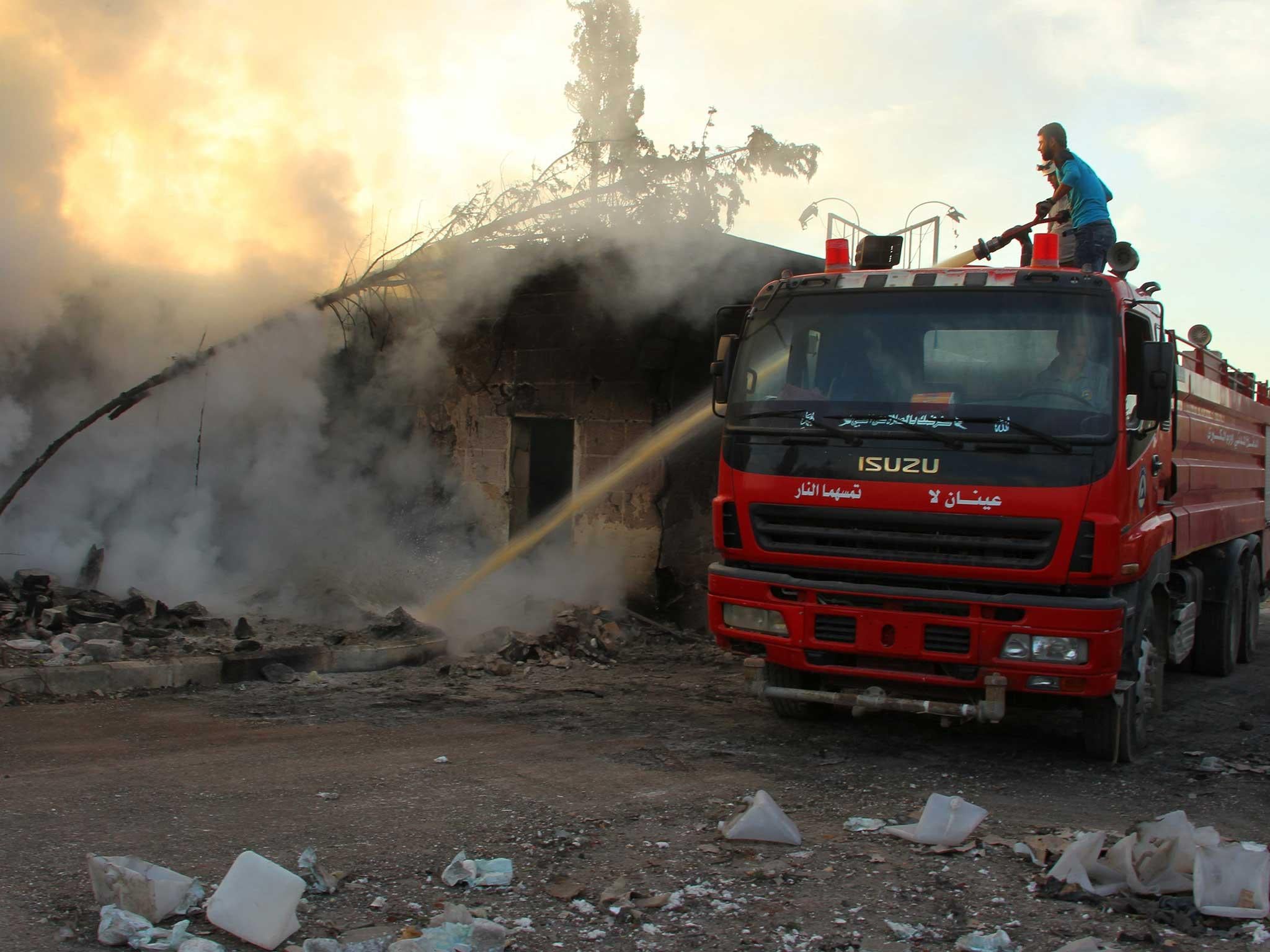Syria convoy attack: Delay following strike on aid workers leaves thousands of Syrians 'on the brink'
Delivering humanitarian assistance is becoming even more difficult and dangerous, Syrian activists and charities say

The volunteer Syrian Civil Defence, or White Helmets, has told The Independent that the suspension of UN aid deliveries following an attack on a UN and Red Crescent aid convoy will adversely affect Syrian civilians who are already in “dire need.”
The claim was echoed by Save the Children. A representative from the charity said this latest delay could “push [people] over the brink.”
Madaya, a town where at least 63 residents died of starvation and malnutrition earlier this year, was expecting its first delivery of aid since June this week.
“Thousands of children and their families are already sick, starving and desperate for food and medicine,” Save the Children told The Independent. Their sources say, by Whatsapp messages, that families in the town are surviving on handfuls of bulgar wheat, and schools are shut because of a meningitis outbreak.
The UN announced that aid delivered around the country would be suspended after a convoy carrying blankets, medical equipment and baby food to Uram al-Kubra in Aleppo province came under attack on Monday night.
21 volunteers were killed in the incident, and 18 out of 31 trucks carrying assistance for 78,000 people were destroyed.
The US, which backs some rebel groups in Syria's five year conflict, and Russia, an ally of President Bashar al-Assad's government, have disagreed over who is responsible for the attack.
US officials claimed that Russian jets were filmed observing the convoy within the same minute it was struck, whereas the Russian and Syrian governments have denied their aircraft carried out an attack. The Russian Defence Ministry released drone footage on Tuesday which it says shows a rebel vehicle carrying a heavy mortar travelling with the convoy, which it said was responsible for the damage.
As a result of the incident, the UN's humanitarian agency, OCHA, announced that it would suspend aid operations until security could be reviewed, although air drops to besieged areas appeared to continue as normal. Officials said that if deliberate, the aid convoy attack would be classed as a war crime.
The Syrian Arab Red Crescent echoed the UN in calling the bombing unacceptable. 54 of their staff members and volunteers have died in six years of war, it said in a statement, calling the latest deaths “an attack on humanity.”
Unfortunately, those who will suffer from the fall out are Syrians already in desperate need: the UN estimates around 5.4 million people in Syria live in besieged or hard to reach areas, mostly in east Aleppo, Madaya and al-Waer, a suburb of Homs.
SiegeWatch, an independent project by The Syria Institute and PAX, claims different figures to the UN. It says that as of July 2016 around one million Syrians live in 40 siege areas, and another 1.4 million are at risk of a deteriorating situation and already live in siege-like conditions.
Only nine per cent of aid was able to reach these communities in August. Save the Children says that in 2016 so far, fewer than a quarter of people in need have received any aid at all.
In Madaya, media activist Wassim al-Ahmad sent a text message to the AP, saying residents were devastated to find out aid had been stopped.
“In the end, the burden falls on the besieged,” he lamented.
The aid convoy attack has further complicated international talks taking place in New York trying to salvage a recent US and Russian brokered ceasefire, which was in tatters by the end of the week.
“The suspension of aid resulting from the aerial bombardment of the convoy only serves to further politicise humanitarian assistance,” a representative from the White Helmets said.
Subscribe to Independent Premium to bookmark this article
Want to bookmark your favourite articles and stories to read or reference later? Start your Independent Premium subscription today.

Join our commenting forum
Join thought-provoking conversations, follow other Independent readers and see their replies